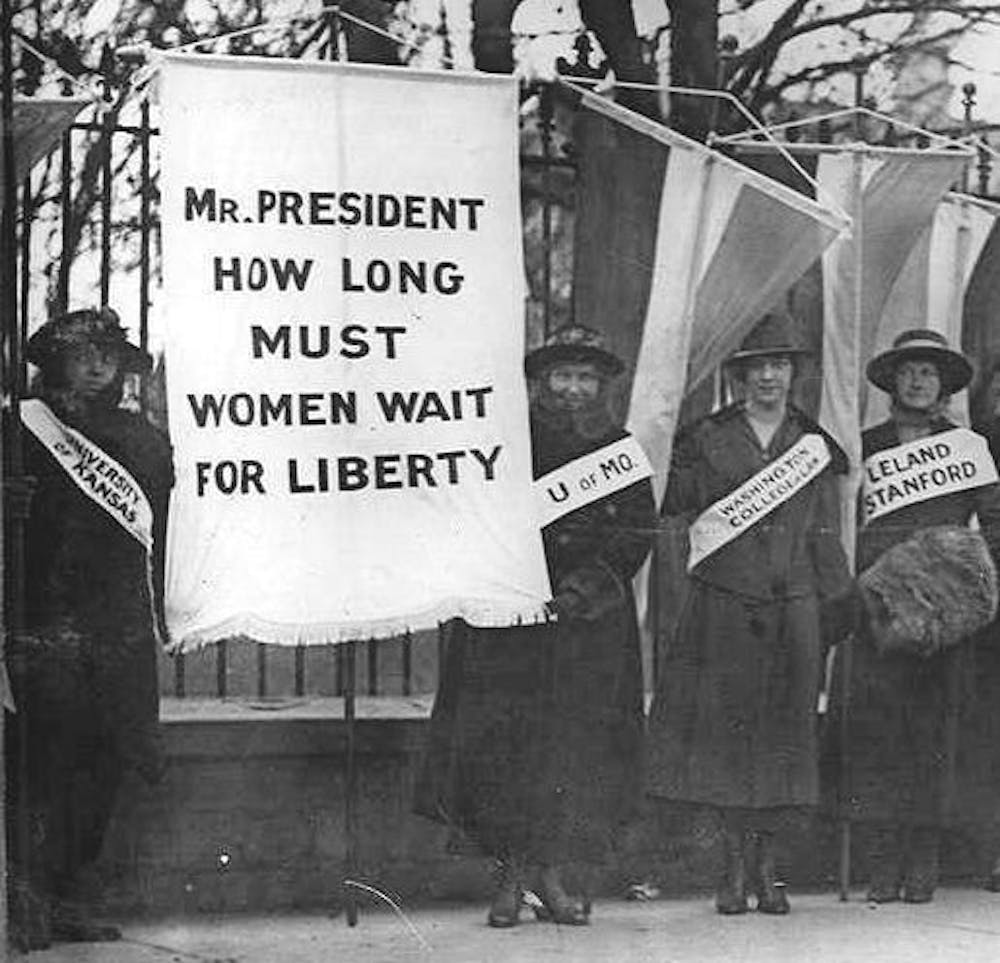Abigail Adams
In one of thousands of adorable letters exchanged between Abigail and President John Adams during their lifetime, Abigail urged her husband and the other members of Continental Congress to remember the rights of women when declaring their independence from Britain. In her letter dated March 31, 1776, she said, “I desire you would Remember the Ladies, and be more generous and favourable to them than your ancestors. Do not put such unlimited power into the hands of the Husbands. Remember all Men would be tyrants if they could.” Unfortunately, her plea went unanswered, and women didn’t gain the right to vote until 1920.
Sojourner Truth
Born as slave and with the name Isabella Baumfree, Sojourner Truth never learned to read or write but became a famed public speaker in the mid-1800s. She lived in New York after they abolished slavery but left when she felt the urge to travel and preach. She was the first to draw the connection between the oppression of slaves and the oppression of women and became highly involved in the rights of both groups. At the Women’s Rights Convention in Akron, Ohio, she spoke about the treatment of African-American women in her most famous speech, “Ain’t I A Woman."
Elizabeth Cady Stanton
Fueled by outraged after she wasn’t allowed to participate in the World’s Anti-Slavery Convention because she was a woman, Elizabeth Cady Stanton met Lucretia Mott. Together they organized the first women’s rights convention in Seneca Falls, N.Y in 1848. There, Stanton read her radical Declaration of Sentiments that proclaimed that “all men and women are created equal,”and, therefore, women should have the right to vote.
Alice Stokes Paul
Paul joined the National American Woman Suffrage Association in 1912 at the age of 25. During her time with NAWSA, she organized several highly publicized demonstrations that gained national attention for the demand of women’s suffrage. She left the organization after disagreeing with their plan to gain the right to vote on a state-by-state basis. Paul rallied for a constitutional amendment and founded the National Woman’s Party. The party campaigned for women’s suffrage and continued to use demonstrations to put pressure on President Woodrow Wilson. In 1920, Wilson urged Congress to pass the Nineteenth Amendment as a “war measure.” Shortly after the Nineteenth Amendment was passed, Paul wrote the original Equal Rights Amendment proposal. However, the amendment didn’t make it to the Senate until 1972.
Betty Friedan
After conducting a survey at her college reunion, Friedan found that a majority of her fellow classmates were unhappy with their roles as housewives. She expanded the idea of the unhappy housewife with her book “The Feminine Mystique,” which explored the unfulfilled lives of women after WWII. Her book is said to have sparked the “second wave” of feminism that sought to further equality between men and women. She founded — and shortly served as the first president of — the National Organization for Women, the largest feminist organization in America. After stepping down from presidential duties, she founded the National Association for the Repeal of Abortion Laws, now known as NARAL Pro-Choice America.
Gloria Steinem
Gloria Steinem is a well-known feminist journalist and activist who has championed women’s rights since the 1960s. She co-founded New York Magazine and Ms. Magazine, as well as the Women’s Action Alliance, The National Women’s Political Caucus, Choice USA, the Women’s Media Center and Ms. Foundation for Women. She’s written numerous bestsellers from a feminist perspective and continues her work as an activist, writer and speaker.
Rebecca Walker
Daughter of author Alice Walker, Rebecca Walker has been named one of Time Magazine’s 50 Future Leaders of America. In 1992, Walker wrote an article, “Becoming the Third Wave,” for Ms. Magazine criticizing the confirmation of Supreme Court Justice Clarence Thomas after he was accused of sexually harassing Anita Hill. In her article, she coined “third wave” feminism and reminded women of the “misconception of equality between the sexes” and said, “To be a feminist is to integrate an ideology of equality and female empowerment into the very fiber of life.” The same year, she founded the Third Wave Foundation that fights current inequalities and supports young women and transgendered youths.
Posts in The F Bomb appear on Wednesdays. Follow @chloeoliveras on Twitter.
Unfortunately, Abigail Adams' plea went unanswered, and women didn’t gain the right to vote until 1920.






